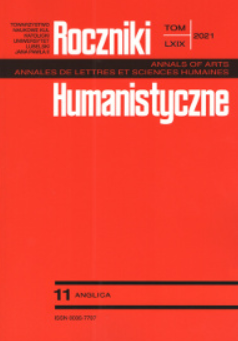BLACK GHOSTS OF THE DIASPORIC MEMORY IN JESMYN WARD’S SING, UNBURIED, SING
BLACK GHOSTS OF THE DIASPORIC MEMORY IN JESMYN WARD’S SING, UNBURIED, SING
Author(s): Vicent Cucarella-RamonSubject(s): Inter-Ethnic Relations, Theory of Literature, Politics of History/Memory, American Literature
Published by: Towarzystwo Naukowe KUL & Katolicki Uniwersytet Lubelski Jana Pawła II
Keywords: diasporic; memory; ghost; slavery; healing; racism;
Summary/Abstract: This article reads Jesmyn Ward’s Sing, Unburied, Sing (2017) as a novel that follows an African American family facing the ghosts of their past and present to resurrect buried stories that are unrelentingly interlocked with the legacy of slavery and the draconian racist practices of Jim Crow. I posit that the novel participates in the re-examination of the trope of the ghost as a healing asset that needs to be accommodated within the retrieval of memory work. Thus, the enactment of this African diasporic memory facilitates the encounter with their ghosts so that the family can start their healing processes and be provided with the tools and examples of how to keep on coming to terms together with and against the legacy of slavery and the present racist practices.
Journal: Roczniki Humanistyczne
- Issue Year: 69/2021
- Issue No: 11
- Page Range: 63-77
- Page Count: 15
- Language: English

